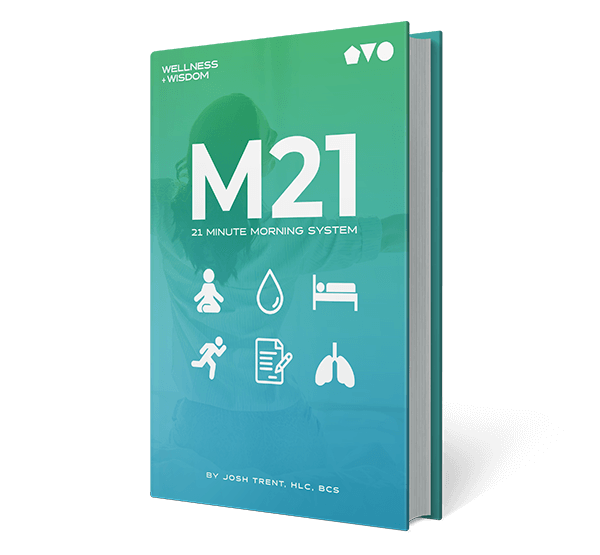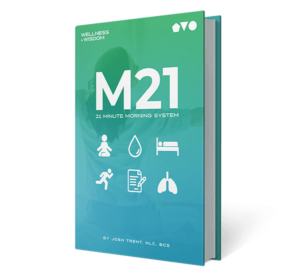 If you pay much attention to the men’s health sphere, then you have also certainly come across the discussion around testosterone levels in men, today. Testosterone, which is known as the hormone that plays a role in male puberty, is vital for everyone to some degree, playing a role in muscle mass, physical growth, sexual health, and more. However, there have been concerns about low testosterone levels, and how this issue may be affecting men of all ages, physically, psychologically, mentally, and socially.
If you pay much attention to the men’s health sphere, then you have also certainly come across the discussion around testosterone levels in men, today. Testosterone, which is known as the hormone that plays a role in male puberty, is vital for everyone to some degree, playing a role in muscle mass, physical growth, sexual health, and more. However, there have been concerns about low testosterone levels, and how this issue may be affecting men of all ages, physically, psychologically, mentally, and socially.
Table of Contents
Is it a Real Issue?
Studies have shown that, indeed, testosterone levels have been decreasing in men at a rate of roughly 1% per year. It’s important to note that some testosterone loss is expected in individuals as we age, but the data indicates that this is a change within the population, not on an individual basis per man. There are a wide range of theories as to why, exactly, testosterone levels are so steadily on the decline. The increase in excessive weight levels, a decrease in physical activity due to more sedentary work lives, as well as the general increase in alcohol consumption and general toxins in the air have all been reported to be potential impacts. But if the decrease in testosterone levels in men is real, what are the impacts on our health?
The Physical Impacts
Testosterone is vital for building and maintaining muscle mass. Low levels of this hormone can lead to a noticeable decrease in muscle mass and strength. This reduction can affect physical performance, making it more challenging to engage in strenuous activities or exercise. Over time, diminished muscle mass can contribute to weight gain and obesity, particularly when combined with reduced physical activity. Men with low testosterone levels often experience an increase in body fat. This condition, sometimes referred to as gynecomastia, can lead to the development of enlarged breast tissue. The imbalance between testosterone and estrogen, the female sex hormone, can promote the accumulation of fat in specific areas of the body, altering the typical male body composition.
The Sexual Impacts
As testosterone is often associated with male sexuality, especially thanks to its role in puberty, you may expect some changes to sexual health as a result of changes to testosterone levels, too. Indeed, this hormone is crucial for sexual performance in men. Low levels can result in a reduced libido, making men less interested in sexual activity. Additionally, low testosterone can cause erectile dysfunction, where achieving or maintaining an erection becomes difficult. These sexual health issues can lead to frustration, stress, and strained relationships. It’s important to note that issues like erectile dysfunction as just as often caused by mental as well as physical issues, not to mention side effects of medication, so it’s important to be thorough in investigating potential causes of the issue.
The Mental Impacts
The effects of testosterone go beyond your body, alone, It has an impact on your mental health, as well. Men with low levels of this hormone are more prone to experiencing mood swings, irritability, and depression. These mood changes can affect relationships and overall mental health, creating a cycle of emotional distress. Low testosterone can even impact your cognitive function. What’s more, the physical changes associated with low testosterone, such as weight gain, loss of muscle mass, and sexual dysfunction, can lead to decreased self-esteem and confidence. Men may feel less masculine or struggle with body image issues, contributing to a negative self-perception. While the decrease in testosterone in men is an ongoing health issue, there has grown a toxic culture of judgment and demonization of the issue in online men’s spaces that is only contributing to the issue.
The Impact on Your Lifestyle
The various physical, sexual, and psychological effects on your well-being, as mentioned above, can have a significant impact on your lifestyle. Sexual health changes can result in strain being put on an existing relationship, for instance. The mood swings and issues with depression associated with low testosterone can affect your relationship with your family members. The general chronic fatigue, decreased cognitive function, and other mood changes can also impact your work performance, as well as the level of self-care that you provide for yourself, due to a generally decreased level of motivation and drive.
Treating Low Testosterone
As much as the symptoms above might seem like a serious cause for concern, and they are to some degree, it’s important to recognize that there are treatments out there that can help. For instance, testosterone replacement therapy, typically administered through injections, patches, gels, or pellets implanted beneath the skin, can help restore testosterone levels to normal. There are also supplements such as tongkat ali which some proponents swear by as a natural means of getting your testosterone levels back to normal levels. As testosterone levels normalize, a lot of the symptoms described above can begin to become less impactful, even disappearing entirely. It can even reverse some changes, such as helping you gain muscle development more easily when working out.
Beyond Treatment
Treating your testosterone levels may be the first step, but it’s important to address the impact of low testosterone that may linger beyond it. For instance, it will be important to prioritize mental health to deal with the self-esteem loss that is often associated with low testosterone levels. Even as your condition improves, the mental scarring is likely to remain for some time, and it’s important to address that for what could be considered a complete recovery. It’s also important to look at your lifestyle, and what you can do to help maintain healthy testosterone levels for the future. Regular exercise, a balanced diet, adequate sleep, and stress management can improve overall health and well-being. Strength training exercises, in particular, can help build muscle mass and increase energy levels.
The low testosterone epidemic is real, as far as modern science has been able to find out, and it is affecting men. Thankfully, there are approaches to take that can halt or even reverse the effects, so be sure to research the options that are available to you.









